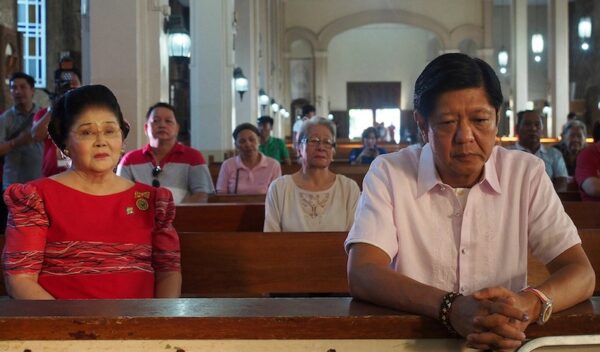PROSPECT HEIGHTS — Ahead of general elections in the Philippines this May, the president of the nation’s bishops’ conference has condemned a proliferation of misinformation and called on citizens to seek out the truth.

“Dear Brothers and Sisters, let us stand up for the truth,” Bishop Pablo Virgilio David of Caloocan said in a new pastoral letter published on Feb. 25. “Remember: goodness without truth is pretense. Service without truth is manipulation. There can be no justice without truth. Even charity, without truth, is only sensationalism.”
The letter, “The Truth Will Set You Free,” came on the 36th anniversary of the 1986 People Power Revolution in the country where tens of thousands of Filipinos came together to protest the corrupt election that had just ended and the regime that was the benefactor. Tens of thousands of Filipinos gathered on Epifanio de los Santos Avenue from Feb. 22-25, 1986, and the efforts ousted tyrannical dictator Ferdinand E. Marcos after 20 years of rule that was marred by human rights abuses and an economic downturn.
A large crowd outside Camp Crame in Manila, Philippines on Feb. 24, 1986, cheered at a radio broadcast announcement that President Ferdinand Marcos had fled the country. This announcement was unconfirmed at the time the picture was taken. Ferdinand Marcos Jr.’s rise loomed large as the Southeast Asian nation marked the anniversary Friday, Feb. 25, 2022, of the army-backed uprising that toppled Marcos and became a harbinger of change in authoritarian regimes worldwide.
The Catholic Church, especially Cardinal Jaime Sin of Manila who died in 2005, had a huge hand in the creation of the People Power Revolution. David cites a post-election statement from the Catholic Bishops’ Conference of the Philippines released on Feb. 13, 1986, that said: “A government that assumes or retains power through fraudulent means has no moral basis.”
“It was a triumph of the entire Filipino People,” David wrote, noting that many of the nation’s current bishops were witnesses to the “injustice and cruelty of Martial Law,” the human rights abuses, corruption, debt, and economic downtown that took place under the Marcos regime.
David then alleges in the current election cycle that there are attempts to distort and delete this history from memory through the seeding of lies and false narratives. Earlier in the letter, he said the CBCP is “appalled” by the historical revisionism and disinformation being spread related to the history of martial law and the EDSA People Power Revolution.
Martial law is defined by the U.S. Department of Justice as “the temporary substitution of military authority for civilian rule.”
David wrote that what’s happening undermines the election because “an election or any process that is not based in truth is but a deception and cannot be trusted.”
The pastoral letter doesn’t single out anyone in particular, though it’s likely aimed at the son of Marcos, 64-year-old Ferdinand “Bongbong” Marcos, Jr., who is the leading candidate to replace current president Rodrigo Duterte in the May 9 elections.
The younger Marcos has leveraged his social media following – with nearly two million followers on YouTube alone – to take control of the race and simultaneously paint a different picture of the Philippines under his father’s rule.
Other candidates include: Vice President Leni Robredo, Manila City mayor Francisco “Isko Moreno” Domagoso, boxing legend Manny Pacquiao, and former police chief Panfilo Lacson.
In the pastoral letter, David makes it clear that the letter favors “none but the truth.” Of the misinformation, he said, “there are troll farms which sow the virus of lies.”
“Let us examine ourselves. Perhaps we, too, sow the virus of lies, which spreads wildly and numbers our consciences,” David wrote. “This virus paralyzes our capacity to recognize God, respect truth and goodness. Thus, we do not realize that there is a ‘pandemic of lies,’ especially in the social media. This is very serious.”
The bishop, therefore, called on people, especially young people, to engage in dialogue and discernment and listen to their conscience to see through the misinformation.
“Be the ones to decide. We trust in your capacity to discern what is true and good,” David said. “Let us not give up on our search and defense for truth – by way of reason and faith, by common dialogue and discernment, prayer and action. Let us have faith as we preserve in overcoming evil with goodness. May truth unite us all.”
